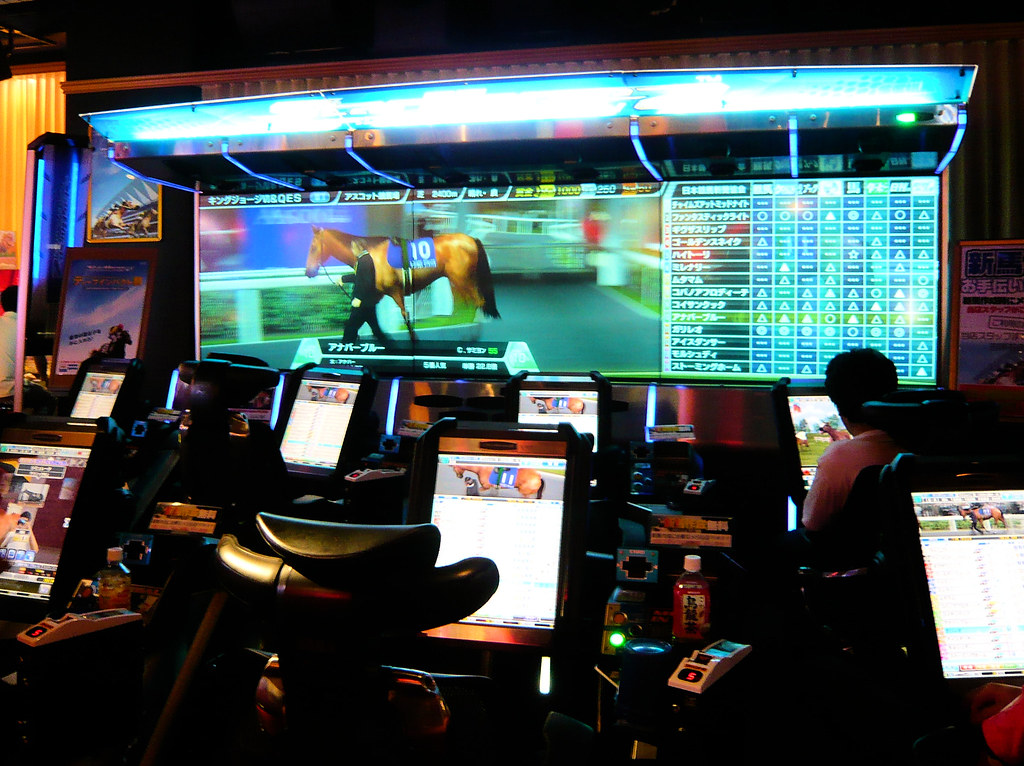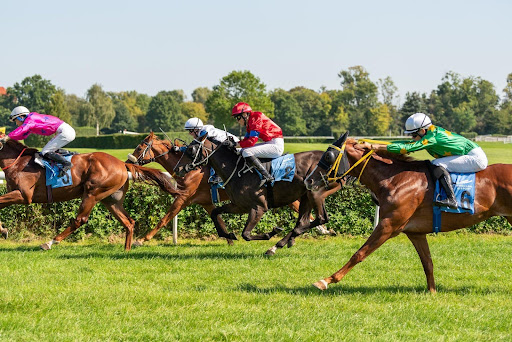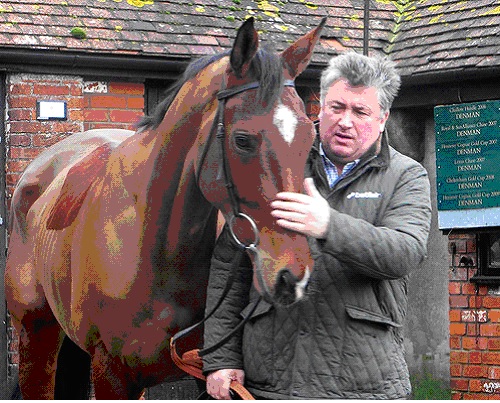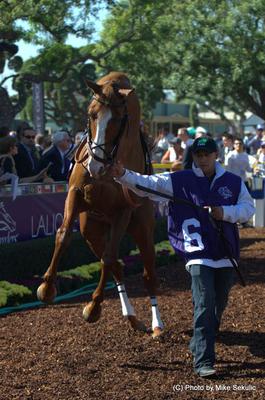Revival Of Horse Racing Through Casino Sponsorships
A Revival Of Horse Racing Through Casino Sponsorships
 Online Casino Virtual Horse Racing
Online Casino Virtual Horse RacingFor many centuries, horse racing has maintained its place as one of the oldest and most celebrated sports; however, it has increasingly struggled to carve out a niche in today's world.
This is due to disappointing race attendance, competing entertainment options, and changing societal interests. Yet, casino sponsorships have become the unlikely ally that gave life to this tradition.
This collaboration bridges the gap between horse racing and the growing casino industry, providing a much-needed boost.
The Intersection of Horse Racing and Casinos
Whereas the relationship between horse racing and casinos is not especially new, over the past two years, more new relationships have been formed than at any time in history.
Casinos are actively seeking innovative ways to expand their brand exposure, and horse racing events provide an ideal platform to reach diverse demographics. These partnerships offer mutual benefits: casinos gain visibility among new audiences, while horse racing facilities receive critical financial support and enhanced marketing resources.
For example, casinos tend to sponsor every major horse racing event, from jockey uniforms to racecourse billboards. Most such deals go beyond branding, as casino-funded programs improve facilities, increase prize purses, and enhance marketing. Casinos are thus driving a revival of horse racing through casino sponsorships.
How Casino Sponsorships Revitalize Horse Racing
Perhaps the biggest single way in which casino sponsorships have rejuvenated horse racing is the solving of so many of the long-standing financial problems that most racetracks have faced in recent decades.
Maintaining a racecourse, providing prize money, and attracting quality entrants are expensive propositions. Casino partnerships provide a reliable stream of funds to refurbish and improve racetrack facilities, expand prize purses, and increase enthusiasm for race day with both fans and entrants alike.
Casino sponsorships have also increased prize purses, which in turn has been the major reason for high-quality horses and good jockeys to join events. When there is more at stake and great audiences, events become more thrilling and prestigious. This benefits horse racing and casinos by driving brand exposure.
Creatively designed marketing programs were constructed to attract new fans to the horse races. Often, their campaigns would reflect a sense of tradition and excitement from horse racing, done with modern twists: live broadcasts over the Internet and social media cross-promotions. Casinos and racetracks combined to draw an ever-growing audience by incorporating old-world charm into modern trends.
 Traditional Horse Racing
Traditional Horse RacingAn example of a successful casino-horse racing partnership
In Pennsylvania, the Mohegan Sun Pocono Downs racetrack provides an excellent illustration of how casino sponsorship can revitalize horse racing. Located in Wilkes-Barre, this facility transformed from a struggling racetrack to a thriving entertainment complex after partnering with Mohegan Sun Casino in the early 2010s.
Prior to the casino partnership, Pocono Downs was facing declining attendance and financial challenges typical of many regional racetracks. The introduction of casino gaming allowed the venue to reinvest significant resources directly into horse racing infrastructure. Specifically:
- Prize purses for races increased by over 50% within the first two years of the partnership
- The racetrack underwent extensive facility renovations, including upgraded stables, improved viewing areas, and modernized racing surfaces
- Marketing budgets expanded, enabling sophisticated digital and social media campaigns to attract younger audiences
- The venue created hybrid entertainment experiences, combining live racing with casino gaming and other entertainment options
The partnership resulted in tangible outcomes:
- Horse racing attendance increased by approximately 35% between 2012 and 2015
- Local economic impact grew, with the facility generating an estimated $15 million annually in additional regional economic activity
- The racetrack maintained its historical significance while becoming a modern, multi-use entertainment destination
The Economic Ripple Effect
Casino sponsorships don't just benefit racetracks; they also contribute to the broader economy. Horse racing events draw thousands of spectators, many of whom travel to attend races.
This influx of visitors boosts local businesses, including hotels, restaurants, and retail establishments.
It has also increased jobs, from maintenance staff to event organizers. This, too, serves as a driving stimulant to the economies of the communities they exist within.
 Casino Horse Racing Slots
Casino Horse Racing SlotsMaintaining a Balanced Perspective
While indeed casino sponsorships have benefited the horse racing industry very much, it is equally important to present a balanced view of this issue.
Critics argue that associating horse racing with gambling businesses could lead to negative publicity. Any organization engaged in this partnership should, therefore, assume responsibility to frame messages to present horse racing as entertainment and a heritage sport, not as a means to gamble.
Moreover, the spending of sponsorship money should be transparent. Racetracks have to be in a position where they can show just how casino contributions add to the sport and the fan experience.
If the ethical bar is upheld, and the partnerships carry the torch for the cultural relevance of horse racing, such partnerships can go ahead and progress without unfounded objections.
The Future of Horse Racing in a Competitive Entertainment Landscape
One of today's most promising avenues whereby the sport could gain from it is how casino sponsorships seem to find their place within today's compact world of sports and entertainment. Thanks to casinos, racetracks are not only surviving but thriving by attracting new generations of fans in innovative ways.
This is further complemented by a revival via the advent of digital technology, whereby many casino-backed racetracks are increasingly developing apps, streaming platforms, and virtual experiences for those who would not attend in a physical capacity.
Such digital developments, often made possible by casino partnerships, merge tradition and modernity in a way that promises horse racing will be here to stay for years to come.
Revival Of Horse Racing Through Casino Sponsorships Conclusion
As horse racing stands at the crossroads of tradition and innovation, casino sponsorships represent more than just a financial lifeline—they are a blueprint for cultural preservation and reinvention.
The alliance between these two industries demonstrates the power of strategic partnerships in breathing new life into historic traditions.
By embracing digital technologies, creating immersive experiences, and connecting with younger generations, horse racing is transforming from a potentially fading sport to a dynamic, evolving cultural experience.
The way ahead is not just about survival, but about re-imagining a centuries-old sport for the 21st century—proving that with creativity, investment, and a deep respect for heritage, even the most traditional industries can move forward with confidence.
Your second block of text...

You Might Like These
Kentucky Derby Odds: Will there be a hometown favorite?
Preakness Stakes Odds: Will the champions face fresh challengers?
Belmont Stakes Odds: At 1½ miles, stamina becomes the great equalizer as longshots can threaten.
Breeders' Cup Odds: International talent collides with American speed, reshuffling expectations across the board.
Dubai World Cup Odds: Under desert lights, can a Japanese sensation prevail against the world's elite.
Pegasus Cup Odds: Retirement beckons for champions seeking one final payday at America's richest race.
Bet on Horses: Every wager tells a story of hope against mathematical probability.
Kentucky Derby Betting: Beneath fancy hats and mint juleps, fortunes change hands with each thundering hoof.
Preakness Stakes Betting: The middle jewel rewards those who recognize when Derby form holds true.
Belmont Stakes Betting: Distance separates champions from pretenders when the final furlong tests them all.
Breeders Cup Betting: Global racing converges for two days where value hides in plain sight.

Returns Policy: Once a customer has agreed to pay for a product or service no returns will be permitted or payments returned.
All PayPal transactions are subject to the PayPal Privacy Policy
Privacy Policy: Personal details provided to this site by an individual may be shared with third parties unless requested otherwise.
Above policies updated 15 March 2018




